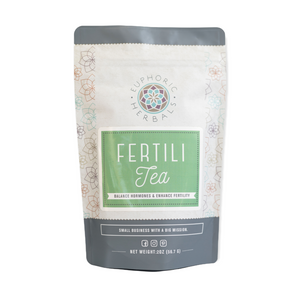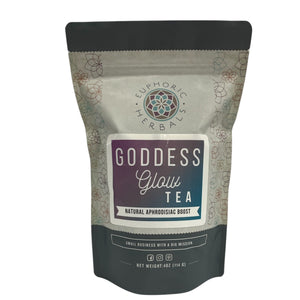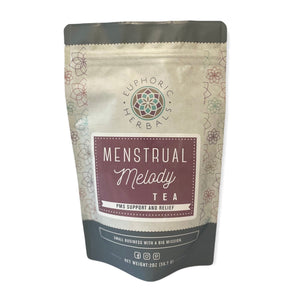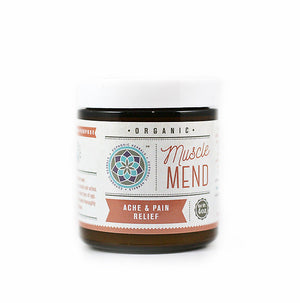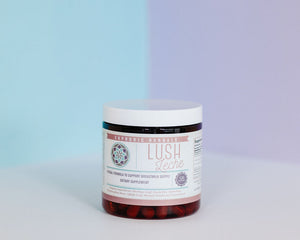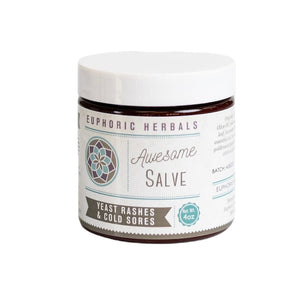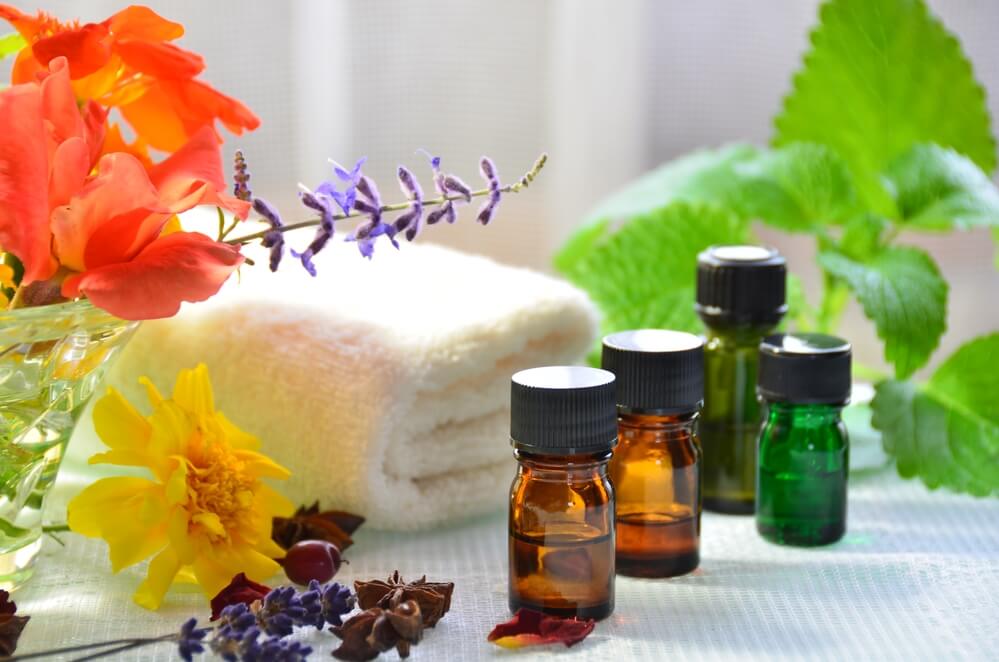Many people are discovering an unexpected side effect of COVID-19: the loss or impairment of their sense of smell.
It takes a loss of this type to realize how important our sense of smell is. Not only does it allow us to connect to the world around us by perceiving the scent of a freshly cut lemon or a cake baking in the oven, it's also directly tied to our sense of taste.
The part of your brain that processes emotions and memories is also directly connected to your sense of smell. This is why we often have feelings (good or bad) associated with certain scents and why not being able to smell anymore can be devastating.
Thankfully, there is a therapy you can use for your nose if COVID has left you not able to smell the roses. Here's everything you need to know about it and how to make essential oils the main part of 'smell training'.
What Is Olfactory Dysfunction?
Olfactory dysfunction is the technical term for a loss or impairment of your sense of smell. Distorted taste is usually involved as well because your sense of smell and taste both contribute to a perception of flavor.
This type of dysfunction is so named because your olfactory system is the body system responsible for your ability to smell. It's made up of not only your nostrils and nasal cavity but also olfactory nerves that connect the outer sensory parts to your brain.
There are three main terms to know if you want to be able to describe a smell impairment:
- Anosmia- The complete loss of smell
- Hyposmia- A partial loss of smell
- Parosmia- A distorted sense of smell (familiar scents smell strange or unpleasant)
How Loss of Smell Relates to COVID-19

Viral infections, especially upper respiratory infections, are one possible cause of olfactory dysfunction. Coronaviruses, in particular, are pathogens known to cause olfactory dysfunction, so it's no surprise that this is a common symptom among COVID patients. (1)
Unfortunately, loss of smell is common in mildly symptomatic and even a few asymptomatic cases of COVID-19, so you may be suffering from it even if you weren't severely sick. (2)
Therapy to Recover Your Sense of Smell
Your sense of smell may return on its own without any intervention. However, if it's been two or more weeks post-infection and you still can't smell, it's probably time to do something about it.
Of course, it's a good idea to visit a health professional to make sure there isn't a hidden cause of your olfactory dysfunction, but there's also a simple (and natural) therapy you can do at home.
Called olfactory therapy, or more commonly 'smell training', repeatedly sniffing strong scents (like essential oils) can stimulate your olfactory system and help your sense of smell to return. Researchers still aren't entirely sure how it works, but some experts believe it's connected to the ability of your olfactory nerves to regenerate with stimulation.
So far, studies have shown positive effects from olfactory therapy, including for those who have a loss of smell due to an infection. (3)
Perhaps the biggest benefit of trying smell training for yourself is that there are no risks involved. The therapy is simply a combination of strong or familiar scents and a commitment to consistently going through the steps each day.
In fact, the biggest downside is the amount of time it can take.
Olfactory therapy is not an instant switch for your nose. It usually takes 4-6 months to notice significant changes, so you should be prepared to have patience and not get discouraged when there aren't instant results. Going in with the right expectations can really help you through the long haul of the therapy!
How to Use Essential Oils for Smell Training
Essential oils are one of the best options for smell training because they have a strong (and natural) scent. Here's the step-by-step method for using them to help your sense of smell return.
Which Essential Oils to Choose

There are four classic essential oils commonly used in olfactory training:
- Rose
- Lemon
- Clove
- Eucalyptus
All of these oils have a strong, distinct scent. They were originally chosen for a study on smell training by Professor Thomas Hummel. He believed they represented four different fragrance categories: floral (rose), fruity (lemon), spicy (clove), and resinous (eucalyptus). (4)
These continue to be the top essential oils used (and sometimes sold in 'smell kits'), but you can also add other oils of your choice.
The top recommendation by experts is to use fragrances you are familiar with and ones you have good memories/emotions associated with. So if you love the smell of oranges, add sweet orange essential oil to your smell training collection.
Cinnamon, lavender, and thyme are three other good options that are familiar to many and have a strong fragrance.
Method
Before you get started with smell training, a good first step is to make some notes about where your sense of smell is at right now. This will be a big help later because it can be difficult to tell whether you're making progress or not, since the changes will be small at first.
Then, set aside space in your day to complete the smell training process twice. It only takes a few minutes, but it's important to have quiet time while you're doing it.
Sit down somewhere comfortable with your four bottles of essential oils (either rose, lemon, clove, and eucalyptus or a modified version of your choice). Open one, hold it a few inches away from your nose, and take gentle sniffs for 20 seconds. While you're doing this, focus on your memory of what the oil smells like and any good emotions associated with it.
Then, pause and take a few breaths without smelling anything before moving on to the next essential oil. Repeat the process until you've gone through all four different scents.
As you can see, the process is very simple, but remember that this is a long-term game. At minimum, you should continue to do two sessions a day for four months with six months being the ideal target.
Rotating Essential Oils

One study from 2015 indicated that switching out the scents used in smell training every 12 weeks may result in more improvements than using the same ones for 4-6 months. (5)
The authors of the study also pointed out that changing the scents every so often may help those with a loss of smell stick to the training for the full six months because it adds some variety to a repetitive task.
You may want to try this for yourself to give your brain and olfactory nerves different stimulation and to help yourself stick it out for the full time period. You can start with the traditional rose, lemon, clove, eucalyptus combination and switch to different oils of your choice after 12 weeks or vice versa.
Other Tips for Recovering Your Sense of Smell
While essential oils are one of the top choices for olfactory training, you can use other strong, natural scents as well. Many people opt for coffee or chocolate because these are familiar scents associated with feel-good memories.
Just make sure that you use natural fragrances and high quality, therapeutic grade essential oils so that you aren't harming yourself with chemicals.
Some experts also recommend taking steps to reduce nasal inflammation to encourage healing. This could be through regular nasal rinses or by using herbs that calm inflammation. Some herbs, like nettle, can be especially helpful for aiding seasonal allergies that increase inflammation and loss of smell.
Get Started Now!
Olfactory training is one of the simplest therapies you can utilize to help recover your sense of smell post COVID-19. Using essential oils makes it completely natural, and it's also been proven effective if continued for 4-6 months.
A good reason not to wait is that some research indicates smell training is more effective the sooner it's started after an infection. (5)
You may be feeling frustrated over your loss of smell, but the sooner you take action and start retraining your olfactory system, the sooner you'll see positive results!
Disclaimer: This post is for informational purposes only. It does not constitute medical advice and should not be substituted for medical advice. Please consult your health care provider, herbalist, midwife, or naturopathic physician before taking herbs, supplements, etc. Here's the link to our full disclaimer.






















































